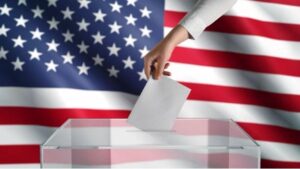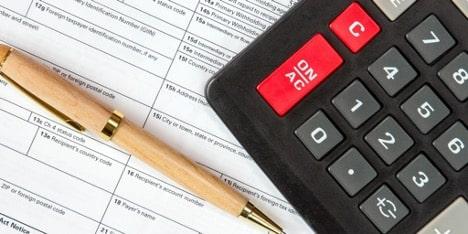
As you prepare to vote in this next election, it’s okay if your opinion on the economy influences your choice. And yet, it’s important to remember that the President of the United States has less control over the economy than you might believe, and the effect on investments during a presidential election is even lower.
Election time can make the markets a bit unpredictable, but looking at presidential elections over the past century, the market has generally trended upwards in the long run. There were some exceptions, like the Great Depression in 1932, World War II in 1940, the tech bubble burst in 2000, and the housing and financial crisis leading to the Great Recession in 2008.
What Power Does the President Have Over the Economy?
Presidents of both major U.S. political parties get credit and blame for good and bad economic conditions during their terms. They get more than their share of both when you consider the power—or lack of power—a president has over the U.S. economy.
The president certainly plays a role in the economy. A president can influence the direction of the economy through executive powers and proposed policies. However, a president’s direct control over the economy is limited by several factors and institutions.
Trade and other economic policies often take time to be implemented, so changes under one president might not be felt in the broader economy until the next president’s time in office. Another factor and institution, the U.S. Congress, holds the purse strings.
Congress approves budgets and spending. Any influence the president wields there depends on which party is in the White House and which ones control the House and Senate. But those factors don’t always hold true either.
And on monetary policy, the president appoints the head of the Federal Reserve, which has a more direct effect on economic matters that affect your pocketbook. But even then, the president’s appointee must be confirmed by Congress, and the Fed acts independently.
Avoid Presidential Election Impact on Investments
In times of political change, it’s easy to get caught up in the hype and let emotions drive your investment choices. However, basing decisions on predictions about the election’s effect on the market can lead to hasty actions and potential losses. Remember that markets are influenced by a wide range of factors beyond election outcomes like those mentioned above, and short-term volatility often smooths out over time.
Avoid emotional responses and making investment decisions based on your prediction of the election’s impact by sticking to a well-considered strategy. Focus on long-term goals and let a knowledgeable financial advisor help guide your decisions, rather than reacting to momentary uncertainties.
Discuss Your Investments With a CERTIFIED FINANCIAL PLANNER® Professional
Worrying about the presidential election impact on investments is nearly equivalent to trying to time the markets. It’s a short-term event that creates volatility and elicits similar emotional responses to market conditions. No one can predict the future.
If you’re concerned about how the presidential election might affect your investments, now is a good time to chat with an experienced Certified Financial Planner® professional. They can talk about your investment timeline, how much risk you’re comfortable with, and what outcomes you’re aiming for.



